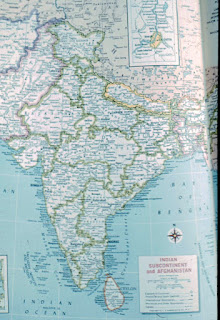Incredible blessings come by every so often. Unfortunately, though, they are soon overtaken by other events! Our memories are short. That's a problem! We forget how much freedom costs, how much effort it takes to change the status quo. It's worth going back a bit to see how a few people can change the entire course of a nation.
One of the most memorable events in South America took place on the sloping land leading down into Lake Titicaca, the highest navigable lake in the world.
It was here that the agrarian reform movement in Bolivia began. This reform movement also had ramifications in other places in South America.
The indigenous people at Hutajata form part of the Quechua population that spreads for thousands of kilometers across the Andes Mountains. Since the arrival of the Spanish, the Quechua people were treated according to a strict legal secondary status. Farms were bought and sold among the elite, but people born on that farm belonged to that piece of property, so they were serfs. A Quechua [person could never own a parcel of land.
All this changed in 1942. A fantastic moment changed everything for the Quechua people, and in 1953 for the whole of Bolivia.
A wealthy Californian named Antonio Chiriotto became a follower of Jesus Christ around 1905. He was challenged by the words of Jesus, "Sell all that you have and give to the poor." Carrying out what was in his heart, he went to Bolivia and bought the 1,000-acre Huatajata farm. After he died in 1911, he bequeathed the farm to Canadian Baptists working as missionaries in the nearby city of La Paz. He trusted them to carry out the words of Christ and bring freedom to the people on his farm.
Thus, Canadian Baptists came to be owners of serfs. They numbered 48 heads of families and 275 family members. This situation created a moral difficulty. On the one hand, the missionaries were there to show the love of Christ, but the tenants of the land at Huatajata were still slaves! Uncomfortable with the situation of "owning serfs," a plan was put into place. Mission leaders wanted to free the serfs, but to do so was against the Bolivian Constitution. Unknown to them, this unforeseen circumstance allowed Christians to bring agrarian reform, structural change to the poorest country in South America.
The mission would take care of the farm by reopening the school. The project would maintain the work of evangelism and education, according to Antonio Chiriotto's last will and testament. The new manager would improve and mechanize the farm with modern machinery, and the gospel would be taken to neighboring communities as a witness to the project.
To liberate the serfs, but not run foul of the Constitution, Earl C. Merrick followed a five-year plan from 1937-1942: the mission paid a wage to the laborers; free labor could no longer be countenanced; the construction of decent housing took place for all the families; they planted eucalyptus trees, and adhered to behavioral morals.
The day came that the farm was divided between 48 families. Each household head stood at the head of his parcel of land and received his property with these words: "I declare you the legitimate owner of this property.' Then, the man lowered onto his side and rolled over and over, like a child, down the hill until he reached the water, falling in. Once in the water, he stood, raised his arms in the air, and shouted! He was free. No longer a serf. He owned his own parcel of land! He was no longer a slave.
The USA Vice-President Henry A. Wallace heard about the agrarian reform that had taken place. He and many other dignitaries went to see the results of the project. The Bolivian Constitution prohibited a gift of land being given to the indigenous people. Still, the Constitution did not prohibit an indigenous man from buying the property on which he lived. This brilliant detour around the formidable phrasing of the Constitution enabled the project to grant freedom to 48 families. In 1953 the Bolivian government subsequently took Huatajata as a model for the Decree of Agrarian Reform throughout Bolivia.
More than 20 schools and medical clinics emerged around Huatajata as Bolivian men and women graduated from the school and showed their love for their people. Lavinia E. Wilson, Alice Booker, Doris Millson, Alice A. Clarke, Janet Holmes, Kay Rowe, Jean Pyper, and Mary Haddow are mostly forgotten names. Each one was faithful in his or her ministry. The Huatajata land reform stands as a testimony to what ordinary people can do when the Holy Spirit empowers them. (It's only one of several social changes for the better that were implemented between 1898 and 1953.)
When we as a family lived in Bolivia, I visited the Huatajata township many times. What a blessing to see how these indigenous Quechua people had used their freedom to build successful lives!
Martin Chura, an old gentleman, wept on the day he was no longer a slave. Speaking through his tears, he said, "Thirty years ago, when I was crossing the top of the mountain, entering the tropical yugas, carrying a heavy load on my back, I begged God for liberty. Today, God has answered my prayers. I am free!" (Information from Arturo Nacho, in Bridging Cultures and Hemispheres: The Legacy of Archibald Reekie and Canadian Baptists in Bolivia, William H. Brackney, Editor, 1997)














